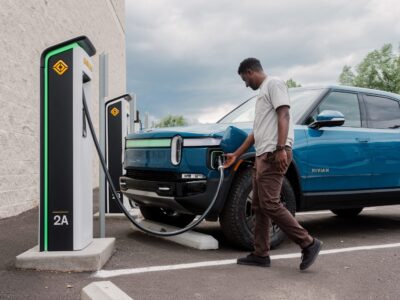On Wednesday, Senators agreed upon a sweeping bill that tackles inflation, reinforces U.S. energy security, and reduces the national debt, all while proposing the most ambitious climate protection provisions in American history. Central to the bill’s success in the Senate seems to be its focus on transparency and its inflation-busting potential.
The Senate introduced the Inflation Reduction Act of 2022 to help relieve inflation’s impact on the American consumer, which has partially been caused by rising energy costs. With gas prices at record prices, this bill is designed to help all those feeling the crunch during these expensive times.
The Senate introduced the Inflation Reduction Act of 2022 to help relieve inflation’s impact on the American consumer.
The investment of $369 billion will go toward growing U.S. energy resiliency and decreasing reliance on foreign fossil fuels and energy technologies.
Power plants are a key item in the Senate’s bill. Under the plans, government would award up to 10 years of tax credits for zero-carbon power plants, and incentivize companies that invest in low-to-zero emission electricity sources. Capturing and burying carbon will also be rewarded via tax credits. As a result, companies receiving these incentives will have both smaller tax bills and carbon footprints.
Next up is the electric vehicle (EV) rebate that aims to benefit Americans by decreasing the costs of automobiles, potentially mitigating the effects of inflation. Purchasers stand to receive a tax credit of up to $7,500 for an EV built in North America, supporting American manufacturing at the same time as U.S. consumers.
Purchasers stand to receive a tax credit of up to $7,500 for an EV built in North America.
Given this substantial benefit, the instability of gas prices, and lower upkeep costs, now could be the prime time to purchase an EV. There will also be $9 billion in rebates for Americans outfitting their homes with energy-efficient appliances. More tax credits will be given out if people switch to sustainable energy, which will help lower the cost of heating and cooling American homes as well. With energy costs being one driver of recent inflation, this too could help consumer pocket books.
The bill also further supports American technology manufacturing. How does that help consumers? Rather than waiting for solar panels to be shipped from China, Americans could purchase them directly from American suppliers, reducing shipping costs and avoiding tariffs. Over $30 billion would be allocated for production tax credits for certain technology manufacturing sectors in the U.S., including EV batteries. A $10 billion investment tax credit will be made available to build factories and facilities for these technologies, which may result in new employment opportunities.
Methane emissions are also addressed by the Inflation Reduction Act, which would increase fees for leaks, protecting Americans from the effects of pollution.

Lastly, agriculture is getting a much-needed investment in the Inflation Reduction Act. Up to $20 billion will be used for climate-smart American agriculture, tax credits, and grants for U.S. biofuel production. This will cut down on fossil fuels, and could cut farmers’ tax bills.
Up to $20 billion will be used for climate-smart American agriculture, tax credits, and grants for U.S. biofuel production.
In addition, the U.S.’s forests and coastal areas will be granted significant funds for conservation efforts and replanting trees in forest fire-heavy areas. New trees and vegetation will also receive federal protection.
The Inflation Reduction Act aims to reverse inflationary trends and bolster American economic resilience, with public tax benefits, strong corporate growth, and less reliance on imported energy. The legislation would support U.S. technology investment and protect America’s natural resources, potentially setting the U.S. on the path to reaching carbon neutrality, while reducing inflation and supporting American job growth.





